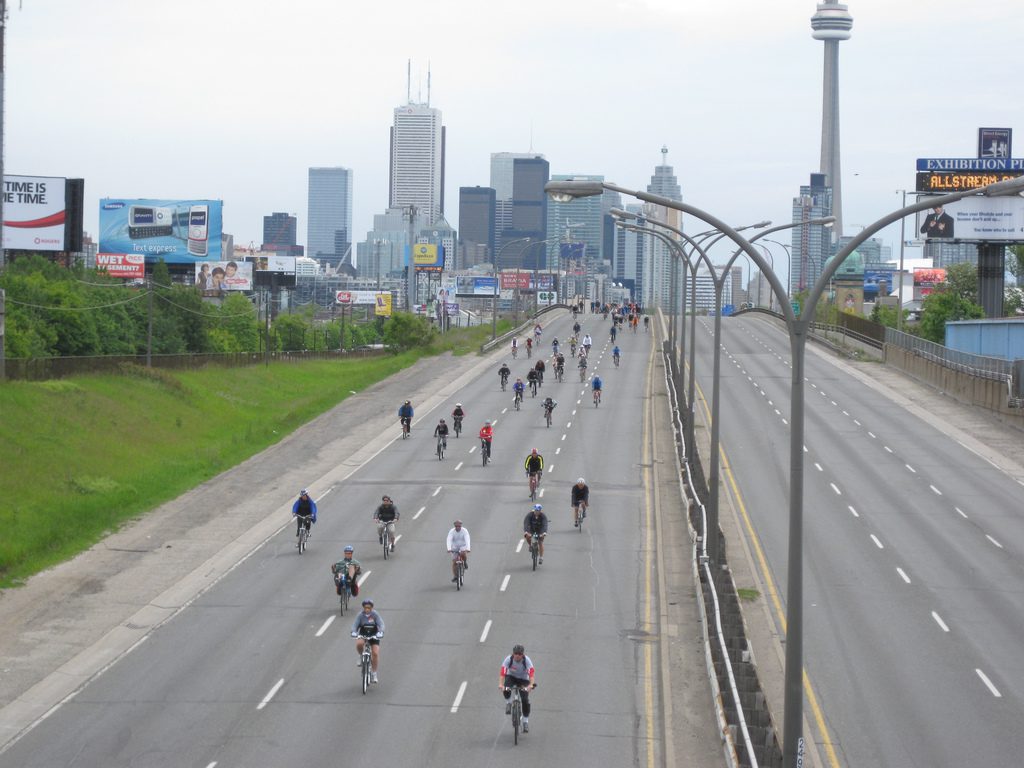Is ActiveTO on the chopping block?
Toronto Mayor says the city is re-evaluating the program

Toronto’s ActiveTO program that closes roads for cars at various spots in Toronto for cyclists, runners and pedestrians, may be receiving an overhaul, Mayor John Tory told CP24.
At the beginning of the COVID-19 pandemic, politicians and advocates in cities all over the world pointed out the need for more pedestrian and cyclist accommodation. In March of 2020, the discussion began in Toronto. Councillor Kristyn Wong-Tam requested the closure of a section of Yonge Street in Toronto, but the proposal was quickly discarded. There were some councillors who thought that too many residents would congregate on the street. However, as the pandemic continued, this opinion changed.
Re-evaluating to make permanent I hope! https://t.co/TLnZCd91ex
— MWCC (@midweekcycling) June 9, 2022
At the start of 2020, major roads were closed to cars on weekends and opened to bikes, runners and pedestrians. Although ActiveTO road closures continued last year, it was not on the same scale, and seemingly sporadic. The very popular Lakeshore West was not used nearly as much, and the closures seemed to be planned on short notice.
Tory says that as life returns “largely back to normal” after the COVID-19 pandemic, Mayor John Tory says the effect on traffic is a factor to use in determining the program’s future.
Yesterday @JohnTory talked about reducing #ActiveTO so people can "get around" and neighbourhoods can be "kept safe". I asked #BikeTO for a quick list of which bike lanes are closed or blocked for construction this summer. Does this let people get around and be safe?#VisionZero pic.twitter.com/jMVailcirN
— NotSafe4BikesTO (@NotSafe4BikesTO) June 9, 2022
In the interview, Tory said that he’s received complaints about ActiveTO, specifically the closure of Lakeshore Boulevard West, and its impact on traffic during recent weekends.
“I have the traffic data, there’s no question that it had a bigger adverse impact on traffic during that time,” he said. “All I can say is we are very carefully examining all of those results, data, and actual real evidence as opposed to stories. We will be coming out with something that takes into account all of those considerations.”
The Mayor said that they are still doing an analysis on the program to determine what the next steps will entail
“We like the idea that some of our streets and public realm facilities could be used by people on an ongoing basis so we continued the program in a way to sort of examine the results.”
The city of Toronto collected data in 2021 that showed that travel times on the Gardiner Expressway and the Queensway double or even triple on ActiveTO days versus “conditions with no ActiveTO closure and provincial lockdown measures in place.”
But cycling advocates believe the program is an important aspect of the city, and could signal change for the ongoing bike boom. The director of the infrastructure institute at the University of Toronto’s School of Cities, Matti Siemiatycki, stresses the importance of ActiveTO as a shift away from reliance on cars.
“As the city comes out of the pandemic we are at risk of a car-based recovery, a recovery where people only see the car as their main opportunity and alternative, we have to provide other alternatives.”
